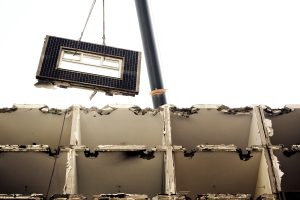Mesothelioma News: South Korea Strengthen Asbestos Ban
Posted on Tuesday, January 3rd, 2017 at 7:32 am
Mesothelioma News South Korea
South Korea has strengthened its Asbestos Safety Management Act (ASMA) starting in the month of August 2016. This is so as to protect those involved in the work of demolishing old buildings and structures. The country is one of the fifty eight countries that have banned the toxic material. South Korea banned asbestos in 2009.
The revised Asbestos Safety Management Act requires owners of commercial and residential buildings with asbestos to have an inspector present. The inspector is to be a certified safety inspector. Therefore the inspector’s role is to supervise all work done on the building. The inspector is required to record the changing status of asbestos in the structure. Further, the inspector must make sure that proper and correct standard procedure for the removal of asbestos are carried out.
Furthermore, the ban on asbestos enforced by South Korea included the ban on manufacture, import or use of asbestos in construction. To date the country has banned asbestos in the county for seven years. However, the county is still haunted by the extensive use of the mineral in the past. As a result, asbestos still poses a work related threat to some and also a secondary exposure threat to others.
South Korea Report
The Seoul Metro Government report states that three thousand four hundred and fifty six (3456) buildings in the capital city have large amounts of asbestos. Such large amounts of asbestos are as a result of the use of asbestos as construction material in the past. Some of the asbestos materials that were used were asbestos cement in flooring, ceilings and walls. The report data also shows that:
- Seventy eight percent (78%) of schools,
- Fifty percent (50%) of all public facilities and
- Thirty five percent (35%) of the service centers
All these were built using asbestos materials. Some of the public facilities included in the report include hospitals, libraries and subway stations.
